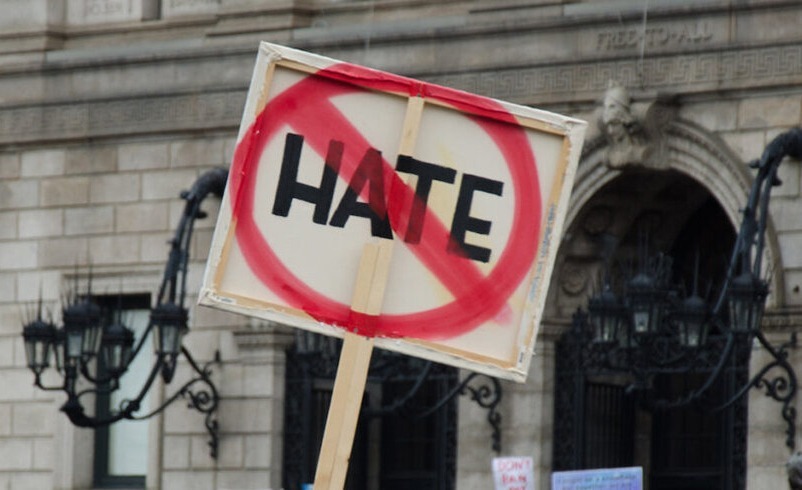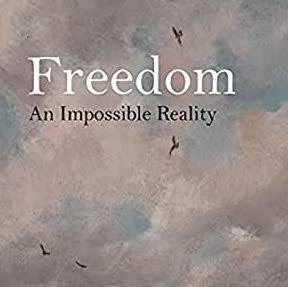
There are few poems that lend themselves to a crisis – whatever that crisis may be – as easily as Yeats’ "The Second Coming". In the century since its publication in November 1920, the poem, written during a pandemic to which it was partly a reaction, has become one of the most frequently quoted – and “thoroughly pillaged” – in all literature.
Having acknowledged this, there can still surely be few predicaments to which it can speak more clearly than our current one, faced as we are with an increasingly polarised society in the midst of our own pandemic. Who among us can’t see the resonance of lines such as “Things fall apart; the centre cannot hold/ Mere anarchy is loosed upon the world’, or ‘the best lack all conviction, while the worst/ Are full of passionate intensity”?
Wherever we look, it is clear that the centre has not held – that the realist values of moderation and compromise have given way to an indulgence of idealism. On all sides of the political spectrum, we see people so full of passionate intensity that it appears that they do not so much hold ideas, as the ideas hold them, rendering them convicts of their own beliefs.
From the right, we have seen the rise of regressive neo-nationalism, be it Trumpism in the US, Brexit in the UK, or their equivalents in Europe and beyond. These movements have been marked by an open indifference to coherence and internal consistency, and contempt for the norms, institutions, and traditions, of the very worlds they purportedly seek to restore.
From the left, there has been an equal but opposite proliferation of “progressive” neo-puritanism, be it the identity politics and “woke” movement, or the rise of “safe spaces” or “trigger warnings” on university campuses. These have been characterised by a presumption of vulnerability or victimhood, and a sort of judgmental reductionism, whereby what is held to matter most is someone’s ethnicity, gender, or sexuality, rather than the content of their character.
But the neo-nationalist and neo-puritan movements are eerily antipodal in other ways. The former makes a fetish of strength, the latter, of fragility; one seeks a return to a halcyon past, the other a leap to a utopian future; whereas Trumpism and Brexit have been highly figurative movements, with scant regard for the realities of what their successful execution would entail, the identity politics and woke movements are remarkably literal, repeatedly failing – in their condemnations and demands that someone be “cancelled” – to appreciate or take into account context, or intent, be it of someone who has said something clumsily, or simply as a joke.
But if these movements are ideologically antithetical, they are nevertheless similar in their basic structure: both generalise to the point of absurdity; both are deeply discontented with the present; neither understand that the opposite of idealism is not pessimism, but realism; and neither accept that reality is complex, defying simplistic correctives, still less ideological panaceas.
And in one particular way, they are not simply similar, but mutually reinforcing. To his progressive opponents, Trump was a problem in need of a solution. To his proponents, he was a solution to a problem, one that existed in its most concentrated form in the progressive left. In short, both ‘sides’ see the other as the disease, and themselves as the cure. The effect of the centrifugal forces created by this self-perpetuating, ever-accelerating and viciously cyclical culture war has been the literal dismemberment of the political centre.
While both sides assume that a resolution lies in the widespread adoption of their ideology, the reality is that neither side will ever convince the other. When countervailing convictions clash, the result is rarely conversion. As it is with strains of disease, strains of thought ultimately strengthen, rather than weaken, when they encounter resistance.
What to do in the face of this centrifugal cultural cycle, with its enfeebling effect, from the right, on key democratic institutional practices – not least the sovereignty of the legislature, the independence of the judiciary, and the freedom of the press to scrutinise the executive – and from the left, on key liberal principles such as the presumption of innocence, and the assurance that, while I may disagree with what you say, I’ll defend your right to say it?
The answer may lie in something now familiar to all of us in this pandemic: epidemiology. Interestingly, the literal translation of the term from Ancient Greek is “the study of what is upon the people” – a definition that is as applicable to ideological as biological contagion. Perhaps, therefore, it is time we establish an epidemiological approach to our ideological convictions.
An argument can be made that whether it is neo-nationalism on the right, or neo-puritanism on the left, they are both opposite but equal symptoms of the same pathology, which is the failed promise of what philosophers call Scientism. That is, the great twentieth century assumption that the priorities and methods of the natural sciences can be applied, technocratically, to society, and that our conscious lives can be understood and intervened upon as if they were unconscious and inanimate things.
On the right, we can see the allergic reaction to this in the rejection of expertise of all types, with objective facts met by alternative ones, mainstream by fake news, wonky detail by populist sloganeering. On the left, the exclusive, spiritless consistency of technocracy has been met by the inclusive, animated contradictions of identity politics, attempting to reinstate feeling, personhood, kindness, and humanity to the culture, but often doing so in terms that appear – in their emphatic and universalising assurance, and clinically objective view of language stripped of subjective context or intent – to be oddly scientistic in spirit.
The approaches on the right and the left may be antipodal and antithetical, but there is a strong case to be made that they are both symptoms of the same pathology – of the same sense of societal malaise, brought on by a culture that, as the saying goes, prices everything, but values nothing, people not least.
In the history of tackling disease, the great leap came once we recognised the difference between the symptom and the underlying pathology, allowing treatment of the cause, rather than the effect. We have worried about Covid-19, but relative to our medieval ancestors, we’ve enjoyed the epidemiological tools by which to mitigate its worst effects. For all the faults of science and policy in this pandemic, we have not wasted time treating symptoms.
The same cannot easily be said about the spread of bad ideas. As long as we continue to view symptoms as pathologies, let alone as cures, we will remain at the mercy of ideological contagion. If contemporary liberal democracy is to survive this current cultural polarity, we must begin by recognising that the competing ideologies we see before us are in themselves neither the disease nor the cure, but simply signs that there is an underlying disease that must be cured.
Before we can find a remedy, the most important step is to develop a proper epidemiology of what, precisely, is “upon the people”. Doing so would seem to be a matter of urgency, for, as is the case with many diseases, while pathologies leave us vulnerable, it is the symptoms that can prove fatal. We perhaps only have so much time before, as Yeats’ wrote a century ago, “The blood-dimmed tide is loosed, and everywhere/ The ceremony of innocence is drowned”.

